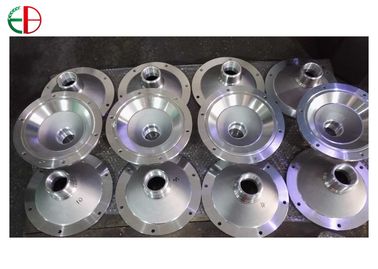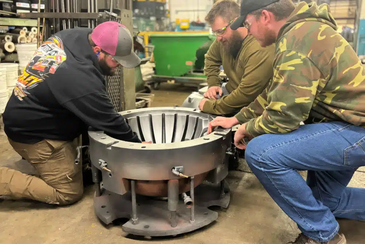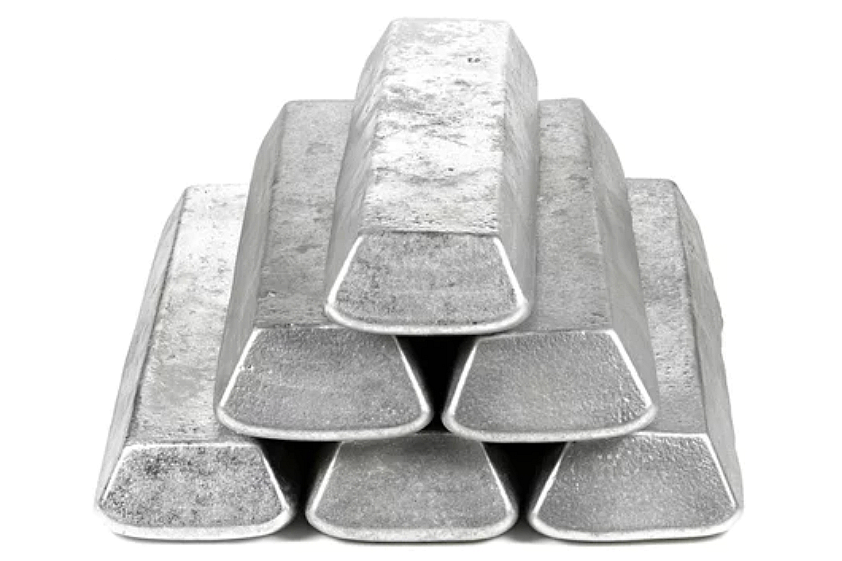A Comprehensive Overview to Picking the Right Foundry Services for Your Task Requirements
Picking the ideal factory solutions is essential for the success of any type of task. Each casting approach-- sand casting, financial investment casting, and die casting-- has distinct benefits. Understanding these alternatives helps in making notified choices. Material choice, manufacturing capacities, and high quality guarantee are essential aspects to take into consideration. Furthermore, reviewing costs can affect long-term viability. Aluminum Casting Company. What factors should guide this decision-making process?
Recognizing the Various Types of Factory Providers
While the world of foundry solutions may appear facility in the beginning glimpse, understanding the different types can greatly improve the manufacturing process. Shops generally focus on casting metals, and the main kinds include sand spreading, investment casting, pass away spreading, and centrifugal spreading.
Sand casting includes producing mold and mildews from sand and is ideal for huge components or low-volume production. Investment spreading, on the other hand, provides high accuracy for complex layouts, making it ideal for aerospace or medical applications. Die spreading, identified by forcing molten steel right into molds under high stress, is reliable for mass manufacturing of smaller components.
Centrifugal spreading uses rotational force to distribute molten steel, generating solid, round elements. Each service type is and has distinctive benefits selected based upon details task demands. Understanding these differences allows suppliers to pick one of the most proper factory service, ultimately enhancing performance and product high quality.
Key Factors to Consider in Product Choice
Selecting the ideal product for foundry services is an essential step that affects the general success of a project. Trick consider material selection include mechanical buildings, thermal resistance, and rust resistance - aluminum casting. Recognizing the designated application and its demands is vital; products need to endure operational anxieties while keeping honesty in time
Another crucial consideration is the product's compatibility with the picked manufacturing procedure, as some products are better matched for particular techniques. Cost-effectiveness likewise plays a significant duty, as budget restrictions can limit choices.

Availability and lead times of materials can impact project timelines, making it necessary for project managers to assess these factors thoroughly. By carefully assessing these aspects, one can assure an extra effective and successful foundry solution experience.
Analyzing Manufacturing Capacities and Technologies
Exactly how efficiently a foundry can satisfy job specs hinges on its production capabilities and modern technologies. An extensive assessment of these components is essential for job success. Production capabilities incorporate the factory's capability to take care of differing job timelines, sizes, and complexities. Understanding the shop's devices and machinery is essential, as modern-day technologies such as computer system mathematical control (CNC) machining and advanced mold-making strategies can considerably enhance accuracy and effectiveness.
Furthermore, the shop's use innovative products and procedures, such as 3D printing or lost foam spreading, can use advantages relating to design adaptability and cost-effectiveness. It is also vital to assess the foundry's capability to range production, making certain that they can fit future rises sought after without endangering quality. By meticulously analyzing these variables, project managers can make enlightened decisions regarding which shop is finest matched to meet their specific manufacturing demands and technological assumptions.
Importance of Quality Control in Steel Casting
Quality guarantee stands as an important column in the steel casting market, guaranteeing that every part meets strict requirements and requirements. This procedure entails systematic monitoring and examination of each stage of manufacturing, from first layout to last inspection. Executing extensive quality control protocols improves the integrity and efficiency of cast components, decreasing i thought about this the probability of flaws that can endanger architectural honesty.
In addition, effective quality guarantee cultivates trust additional reading fund in between customers and factories, as adherence to high standards symbolizes commitment to excellence. It likewise reduces expensive rework and delays, improving production procedures. By recognizing possible concerns early, quality control not only safeguards completion product yet likewise contributes to continuous improvement within the shop's operations. Ultimately, focusing on quality assurance in steel casting is necessary for attaining client fulfillment and preserving an one-upmanship in the market.
Assessing Cost-Effectiveness and Budget Restraints
While going across the intricacies of factory services, reviewing cost-effectiveness and budget plan constraints becomes a vital element for organizations. Recognizing the total cost of possession involves greater than just the preliminary price; it needs an analysis of long-lasting expenses, consisting of materials, labor, and functional efficiencies. Companies must request in-depth quotes that lay out all prospective costs, allowing a more clear comparison between various foundries.
In addition, companies need to assess their certain project demands versus budget limitations. This consists of reviewing the trade-offs between reduced prices and possible influences on quality, lead times, and integrity. It is essential to take into consideration whether the picked foundry provides scalable options that can fit future demands without significant financial strain. By very carefully stabilizing price factors with project goals, firms can make educated decisions that optimize both budget and performance, making sure effective results for their factory tasks.
Regularly Asked Inquiries
Just How Can I Ensure Timely Delivery of My Foundry Job?

What Certifications Should a Shop Solution Supplier Have?
A reliable shop service provider must possess qualifications such as ISO 9001 for quality monitoring, ISO 14001 for environmental management, and industry-specific accreditations that show compliance with safety and security and performance criteria relevant to the spreading procedure.
Can I Go To the Shop Before Deciding?
Yes, visiting the factory prior to deciding is frequently advisable. This enables potential customers to assess the facility, fulfill the team, and warranty that the services straighten with their particular task needs and criteria.
What Is the Common Preparation for Custom Castings?
The normal preparation for personalized spreadings varies from four to twelve weeks, relying on the complexity of the design, material requirements, and the shop's capacity. Timely communication can commonly quicken the process.
How Do Foundries Deal With Style Modifications During Production?
Shops typically fit layout adjustments during production by applying flexible processes. They assess see this here the effect on prices and timelines, communicate with clients, and adjust operations to guarantee quality while minimizing disruptions to the production schedule.
